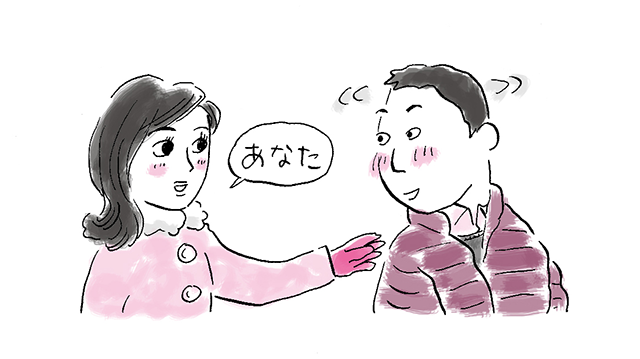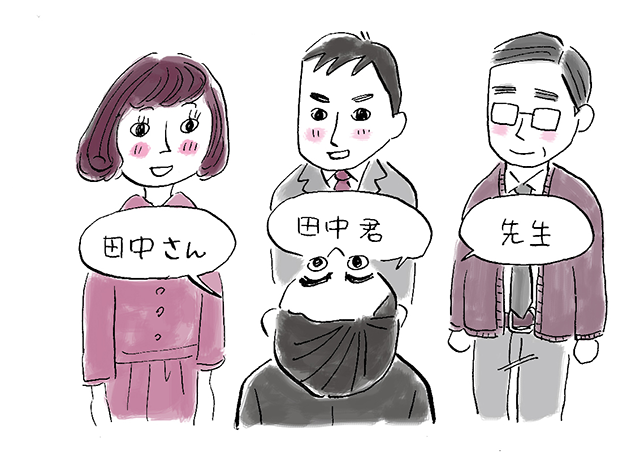“You” is not the only translation of “Anata”

Japanese has a rich vocabulary compared to English, but it can convey delicate nuance. For instance, the English word “you” is generally translated as “anata,” but in actual conversation, many other words are used. Sentence endings also vary in accordance with this. “Anata ha ima isogashii desu ka” (Are you busy now?) is used as a standard sentence in Japanese textbooks. However, few people use the word “anata” in daily conversation.

When a woman says “anata” to a man, it implies that he is her husband or they have an intimate relationship. Instead of using “anata,” both men and women generally use surnames, adding “san” at the end. Some men address friends or subordinates by their family or first name. In addition, some people attach “kun” to the end of a name when speaking to friends or subordinates. Some people use “kimi” with friends or subordinates, without addressing a person by name.
Many women address their friends by their first name instead of by their family name. With superior people, it’s common to use not their name, but their job title. Many people address children adding “chan” after their first name. Some men use “omae” with their wives, children and close friends. When men speak ill to others, they sometimes use “kisama” or “temee.
